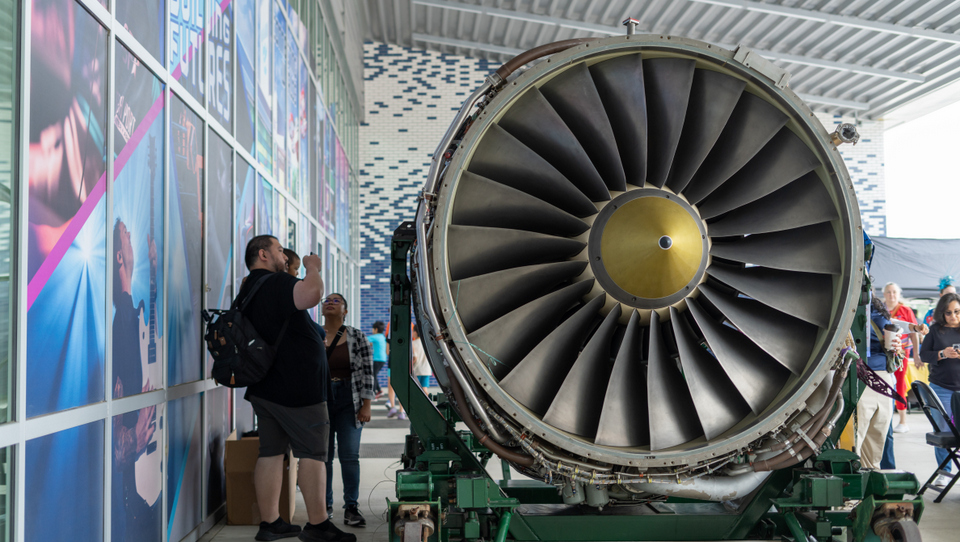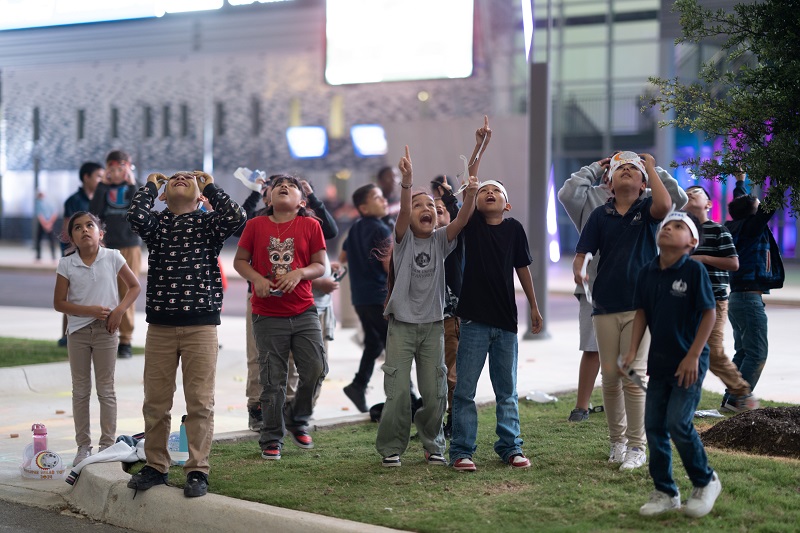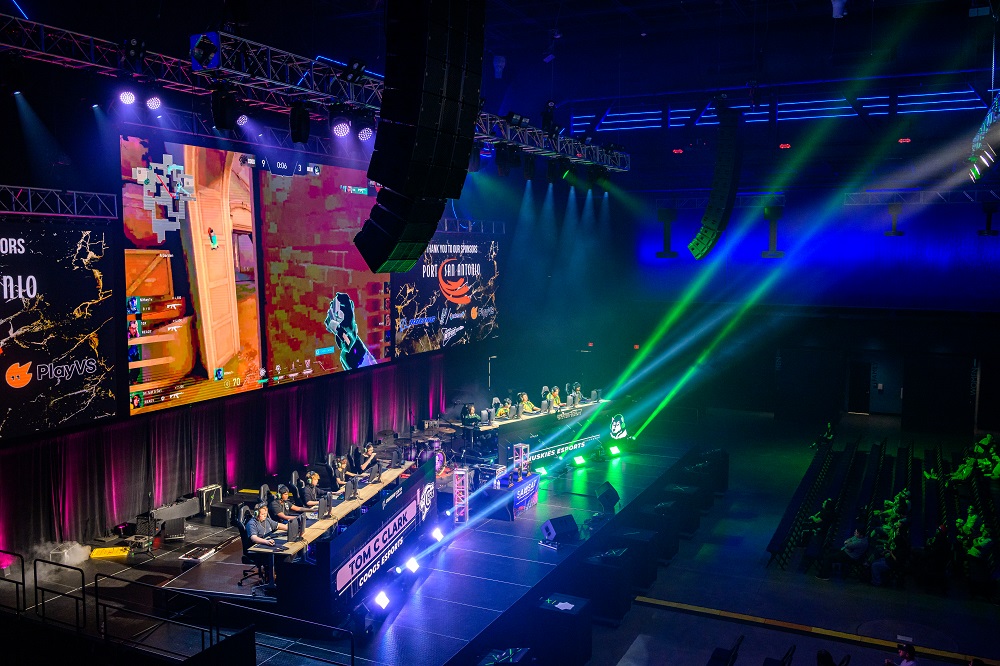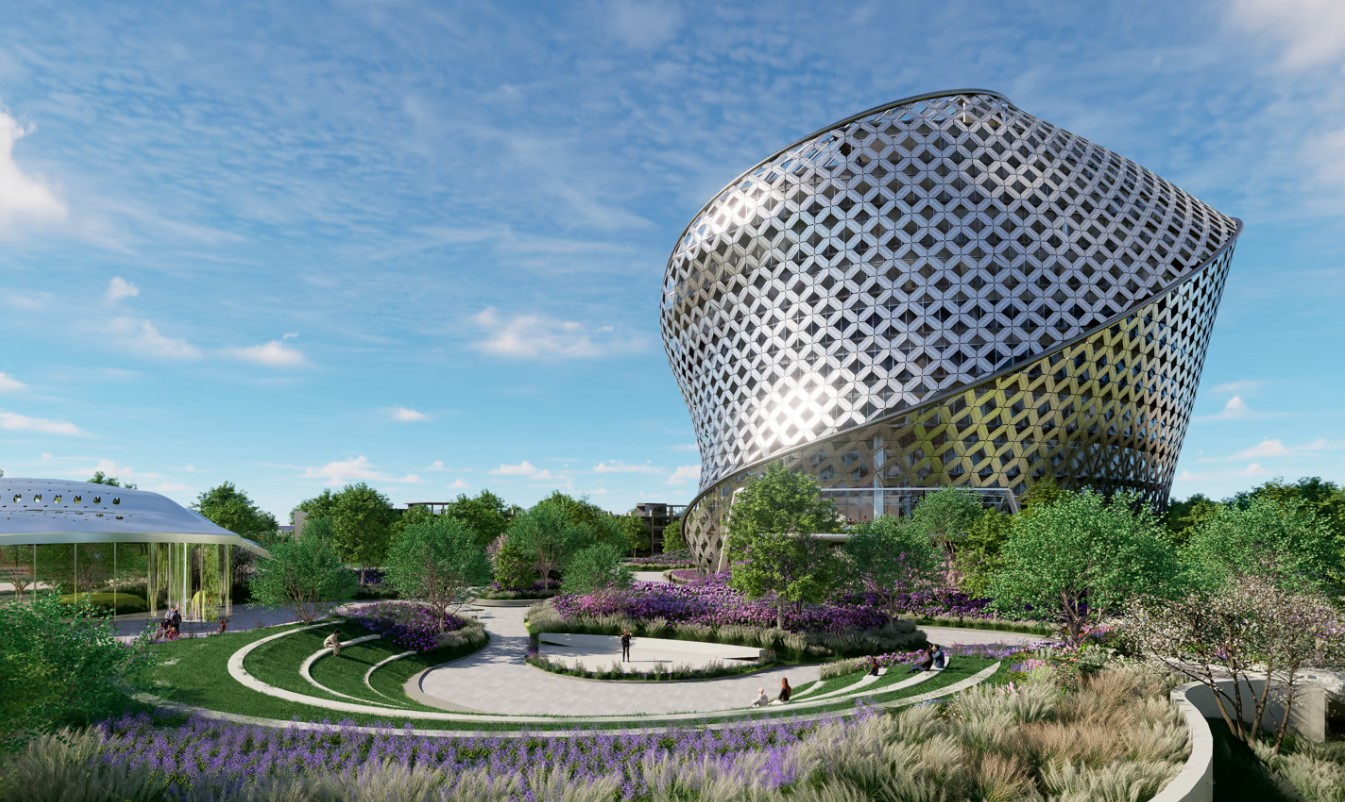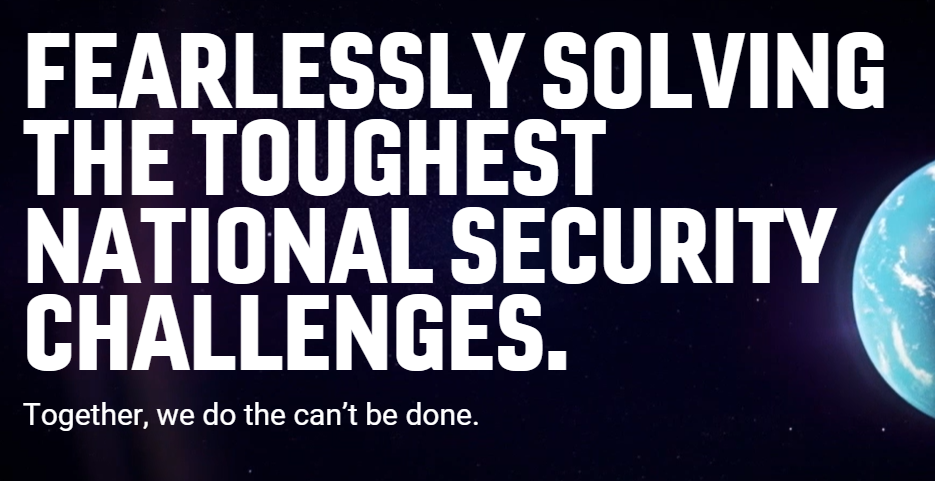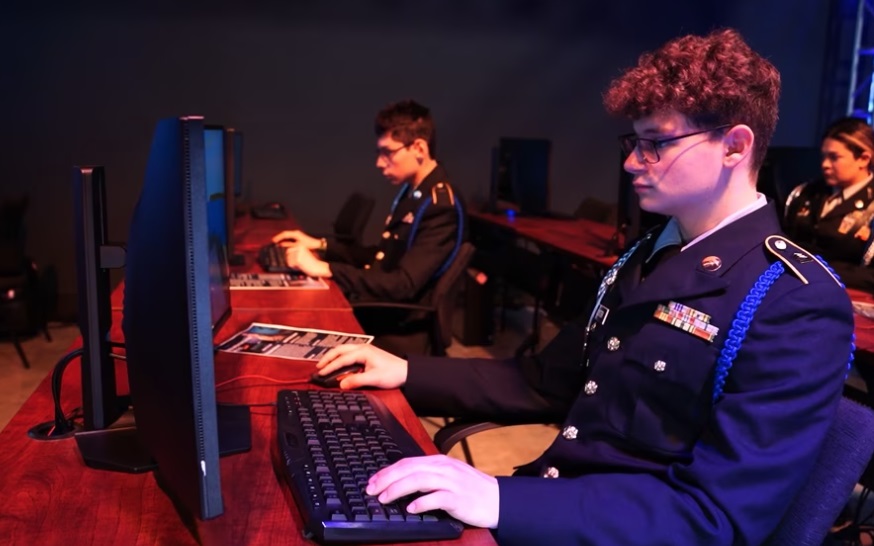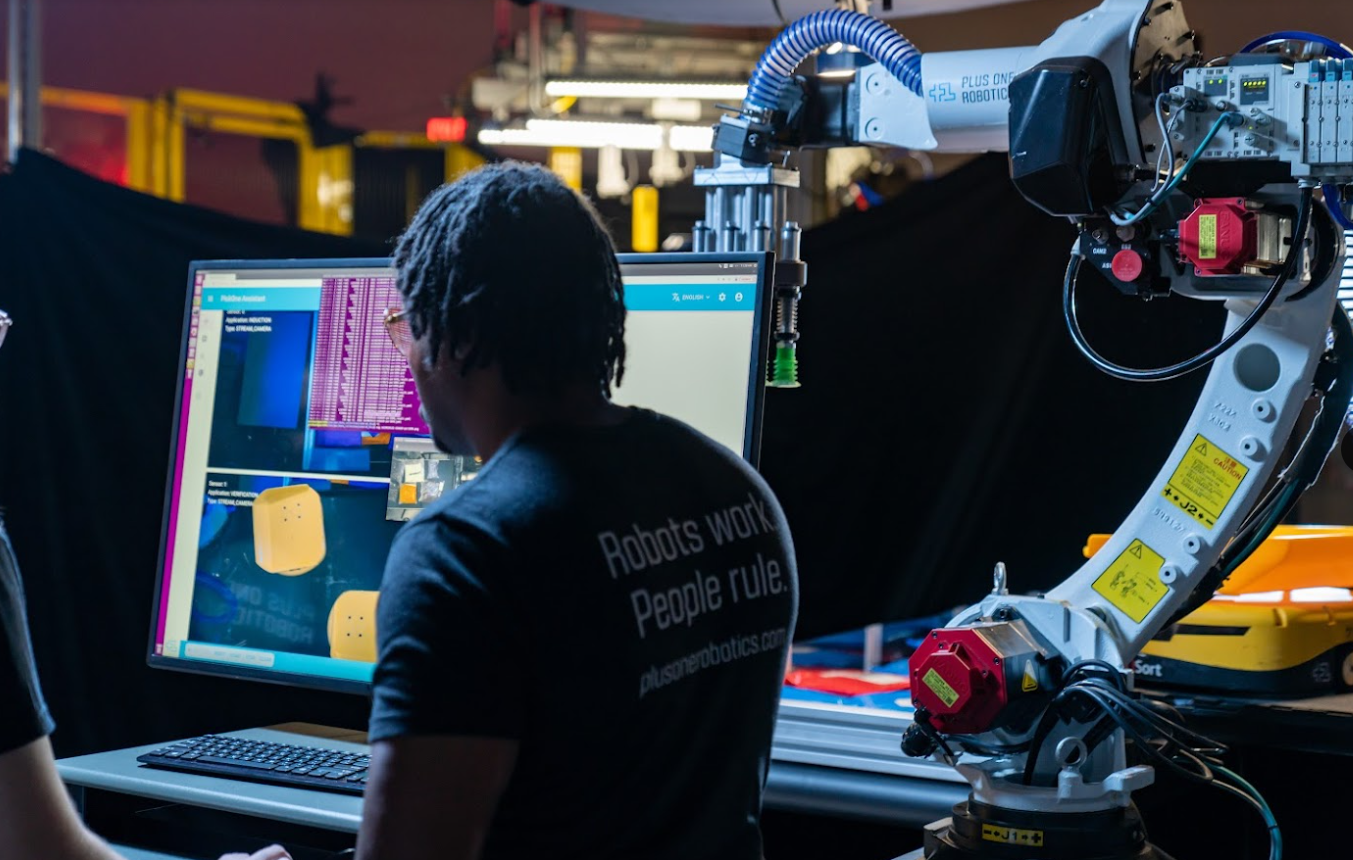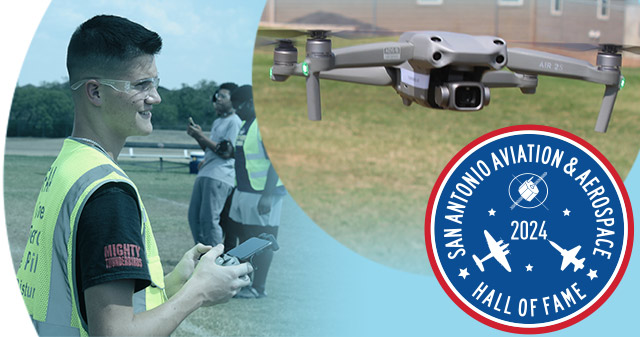Kelly Heritage Foundation’s $110,000 gift propels WEX Foundation’s renowned program to further connect students with future careers in San Antonio’s burgeoning space science ecosystem.
07-17-2023
Downloadable Version
SAN ANTONIO, TEXAS — One of the nation's innovative STEM/STEAM programs based on a hands-on space science curriculum will further its reach by welcoming a new cohort of 35 students from across San Antonio beginning next fall.
The Lunar Caves Analog Test Sites (LCATS) program is a cornerstone of learning experiences provided by the San Antonio-based Educational nonprofit WEX Foundation. The three-year curriculum is offered free of charge to students and their schools; a $110,000 gift from the Kelly Heritage Foundation (KHF) will cover the majority of costs for the upcoming 2023-24 school year.
Established six years ago, LCATS allows middle and high school students to work alongside aerospace and other industry professionals to tackle real-world space exploration challenges and offer solutions through an array of investigations, experiments and design projects. Concepts addressed by the effort include the development of satellite and other large infrastructure in Earth's orbit and on the surface or within caves on the Moon (hence, the Lunar Caves moniker). To date, over 100 students have participated in LCATS, and many of its graduates have undertaken further studies in space science and related technologies.

LCATS alumnae Alinne and Brenda Romero-Torres with a model robot cliff crawler for scaling down lunar pits, carrying a CanSat science instrument payload.
Along the way, students take part in expeditions to area caves to conduct research and experiments and also learn design skills and practical applications in the classroom and lab. Curricula include learning 3D printing technology and how it can be the basis of upcoming lunar construction by utilizing regolith minerals readily available on the Moon's surface. LCATS' learning experiences parallel much of the work that is being advanced in San Antonio by the WEX Foundation's affiliated commercial enterprise, Astroport Technologies.
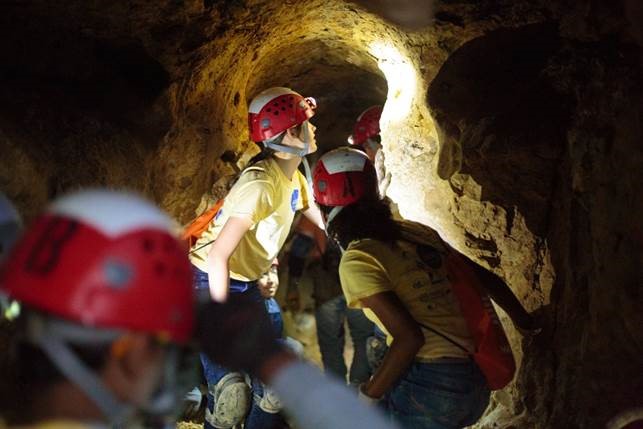
Since future colonies on the Moon will likely be built inside lunar caves that protect humans from radiation and other hazards, LCATS programs include visits and research activities in caves across South and Central Texas. (Photo courtesy of the WEX Foundation)
The WEX Foundation and Astroport have been based at Port San Antonio's large technology innovation campus since 2019 and 2020, respectively. In addition to maintaining a research facility at the Port, WEX and Astroport's combined efforts developing integrated technological solutions to support lunar construction — thanks to the work of previous LCATS cohorts — is on display at the San Antonio Museum of Science and Technology's AREA 21 exhibit hall.

Scale models of future habitats on the Moon designed and created with three-dimensional building technology by young students participating in WEX Foundation programs are on display at the San Antonio Museum of Science and Technology.

Rendering of what the early phases of a colony on the Moon might look like. In the foreground, robots are building a launch pad with bricks created by grinding, melting and re-shaping basaltic moon rocks. (Image courtesy of XArc)
"The WEX Foundation has a solid track record of engaging students with some dynamic programs that have inspired young people across San Antonio and, importantly, connected them to leading experts in various fields and set them on their way on exciting educational and eventual career paths," said Kelly Heritage Foundation President Jim Perschbach. Perschbach is also President and CEO of Port San Antonio.
"As part of their experience, the students also come to have real insights into the work that is taking place throughout their community," he added. "San Antonio is on the leading edge of the many disciplines required to collaborate for humankind to fully harness the space domain: aerospace, robotics, advanced manufacturing, cybersecurity and a host of others. This gift is a true investment in our young people as they become the next generation of talent and further strengthen San Antonio's standing as one of the world's leading communities of space expertise."
"We are grateful for the big boost the Kelly Heritage Foundation has given us to grow the momentum of an effort that has already inspired and transformed many young lives," said WEX Foundation founder Sam Ximenes.
"We are living in exciting times where tapping into the space and lunar domains on a grand scale are no longer the stuff of science fiction," he added. "There, humankind will be able to address some of its most pressing needs, such as the opportunity to tap into boundless energy through space-based electric power generation, transporting urgent cargoes via suborbital rocket flights and much more. Our young students will not only see these transformative changes within their lifetimes; thanks to the learning and tools they acquire through LCATS, they will have the opportunity to play leading roles in that technological quantum leap."
This marks the third major gift awarded in recent weeks by the Kelly Heritage Foundation. This spring, it provided over $200,000 to fully fund one of the largest single-day computer build programs in the nation, in which 100 area students personally assembled state-of-the-art gaming systems under the mentorship of leading industry professionals; students were able to keep the computers they built.
Just days after the computer build program concluded, the San Antonio-based Dee Howard Foundation was the recipient of $150,000 to support an upcoming drone technology program which will be delivered at no cost to area middle and high school students during the 2023-24 school year.
ALUMNI SPOTLIGHTS
Siddhi Raut (2022 LCATS Graduate)
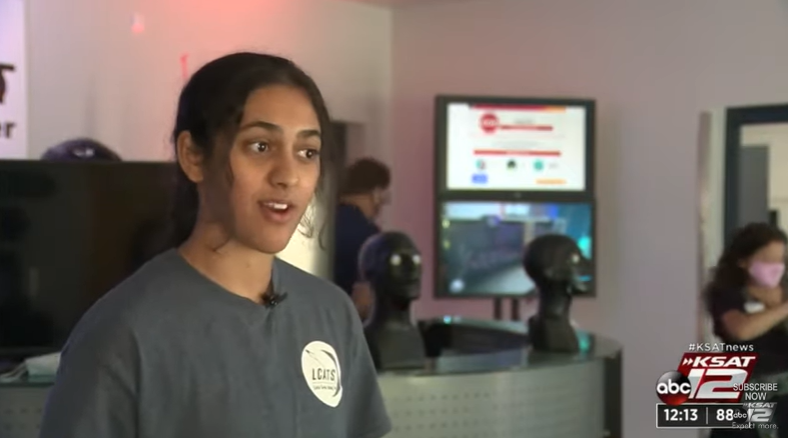
Raut as she was interviewed in 2021 when she and fellow LCATS students connected in real time with astronauts aboard the International Space Station. (Credit: KSAT-TV)
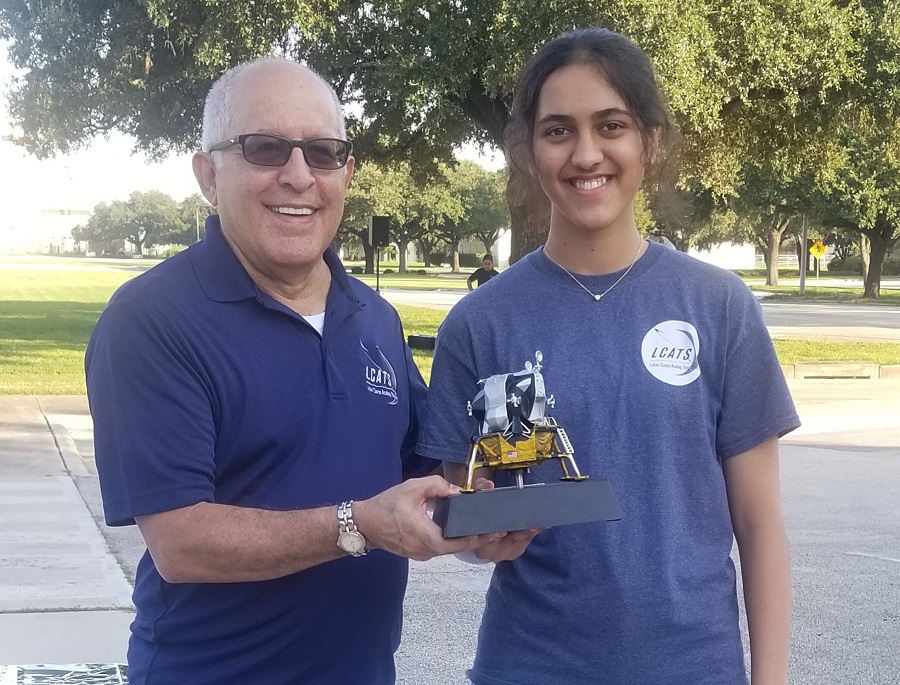
Raut received an award from WEX Foundation founder Sam Ximenes for her exemplary work as part of the LCATS program. (Credit: WEX Foundation)
Currently: Raut is an incoming senior at Reagan High School who continues to actively pursue space research. This includes working on an independent project replicating Martian environments and serving as a member of the Astrophysics Theory Group at Baylor University.
Raut has also launched a nonprofit called SpaceTourist, which provides students all over the world with the resources to pursue research and activities guiding them toward future careers in STEM. Run mostly by high school and college students, as well as former NASA interns, the organization seeks to level the playing field for all students — no matter their background.
LCATS Memories: "My favorite memories were exploring Robber Baron Cave (and seeing the bats), touring Southwest Research Institute and launching our high-altitude balloon as we partnered with Magnitude.io, where I got to present our group's research at the AIAA Orange County Conference! The LCATS experience made me feel more me. I've always had an interest in space-STEM, and being given the chance to not just learn more about it, but to act on it, was such an invaluable opportunity. I looked forward to every meeting with my cohort, and every project made me expand my horizons. LCATS inspired me in a way to believe in myself and envision my future in astrophysics theory as a reality."
Natalie Sherman (2020 LCATS Graduate)
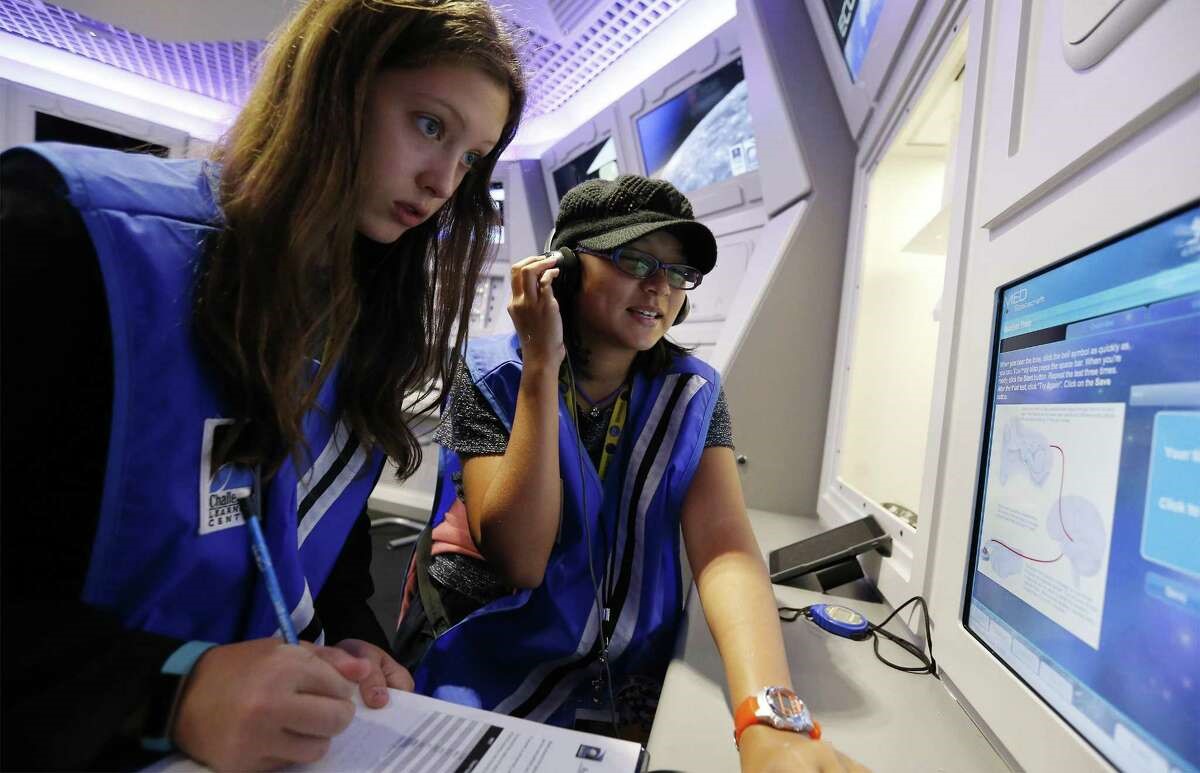
Natalie Sherman (left) of Kitty Hawk Middle School and Nicole Gardner from Young Women's Leadership Academy, shown in 2017 as they conducted tests for reaction and reflexes at the Challenger Learning Center. (Credit: Kin Man Hui/San Antonio Express-News; read the news article here)
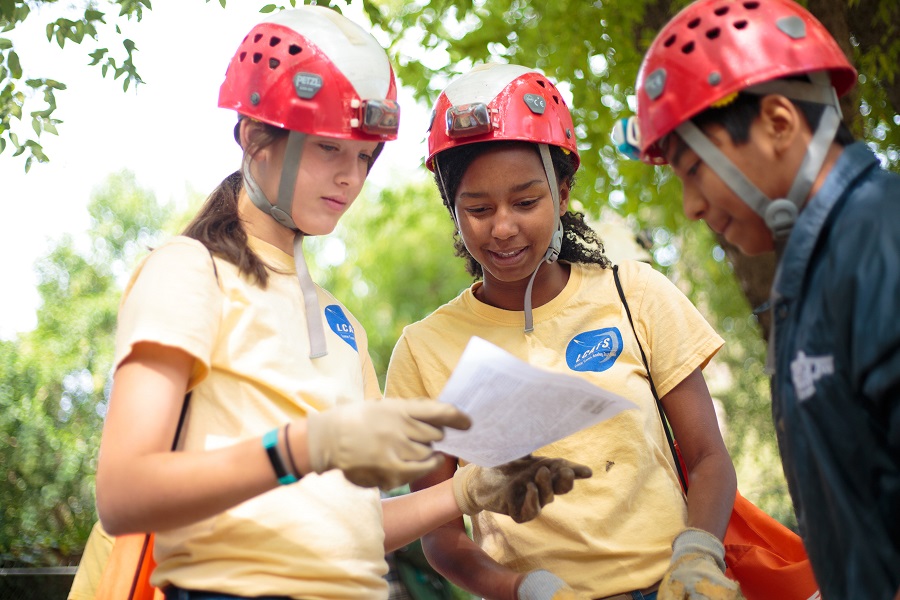
Sherman (left) as she and fellow LCATS alumni prepare to venture into a nearby cave system. (Credit: WEX Foundation)
Currently: Spending the summer of 2023 as an intern for the WEX Foundation with plans to begin her freshman year at the University of Texas at Austin in the fall, concentrating on economics and pre-law.
LCATS Memories: "I especially remember the cave trip to Robber Baron Cave where we mapped passages of the cave system with LIDAR. Another memorable moment was in the last year, where Mr. Ximenes mentored me in researching and writing a paper on long-term lunar surface habitation, which I presented at the 2020 UTSA Earth Symposium. The ability to pursue guided research at such an early point in my academic career has opened up so many opportunities for me. I thoroughly enjoyed learning from industry professionals about space and engineering, and I would highly recommend the program to any student who is considering applying, even if they don't see themselves going into engineering, space, etc. The freedom given to me as a middle schooler to accomplish goals without a roadmap led to me developing invaluable skills I will use for the rest of my life."


